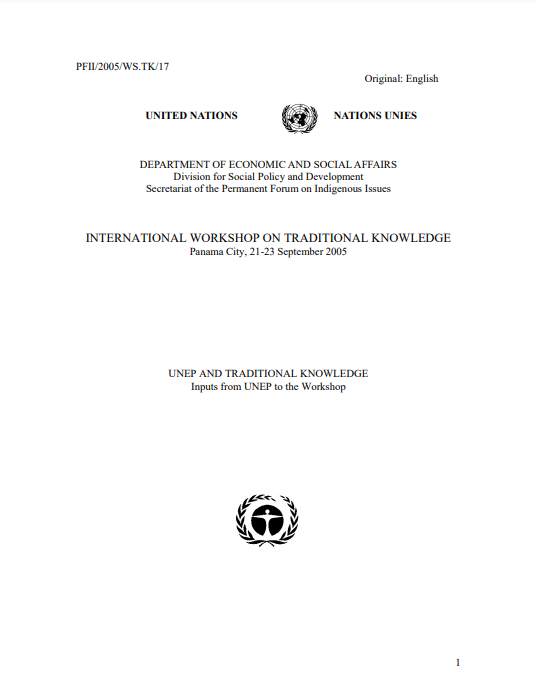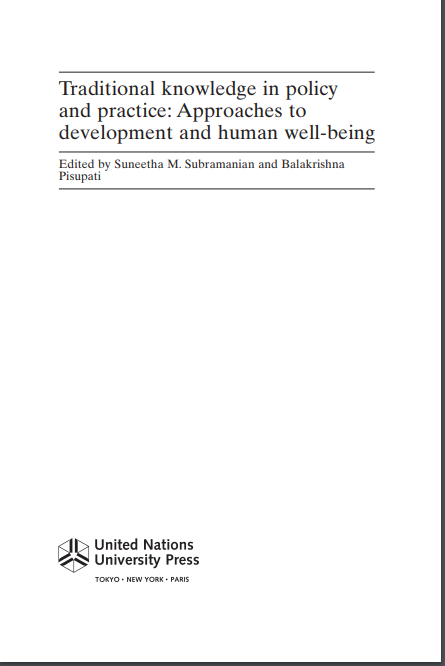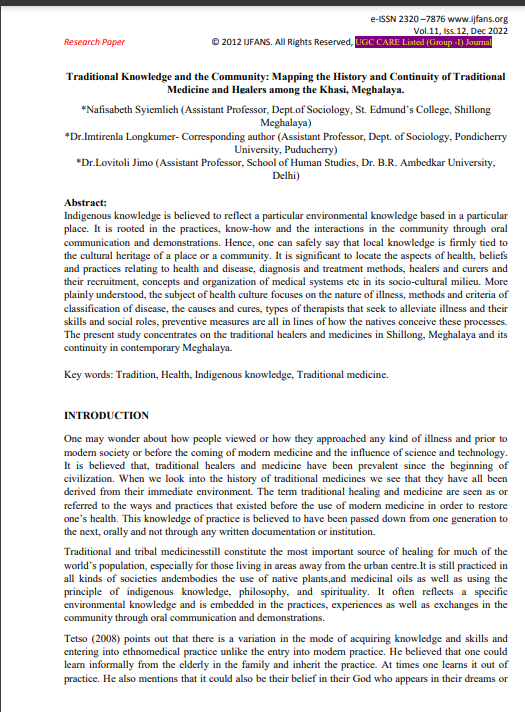Knowledge Hub
Resource Kit on Indigenous People' Issues
2008
Author(s): Secretariat of the United Nations Permanent Forum on Indigenous Issues/DSPD/DESA
One of the objectives of this Kit is to provide elements to help the UNCTs understand the language specific to indigenous peoples in the CCA/UNDAF Guidelines, thereby facilitating their implementation. An additional purpose is to support UNCTs in the âroll-outâ of the UNDG Guidelines on Indigenous Peoplesâ Issues. Finally, this Resource Kit also supports the efforts of the Permanent Forum in promoting the implementation of its mandate at the country level.
Partnering with Indigenous Peoples: Experiences and Practices
2013
Author(s): The Secretariat of the United Nations Permanent Forum on Indigenous Issues
This is not an exhaustive inventory of the experiences of the UN system. The case studies and projects profiled demonstrate how partnering with indigenous nations, peoples and communities is integral to the success of UN policies, programme and projects.

International Workshop on Traditional Knowledge
2005
Author(s): UNEP and Traditional Knowledge
UNEP is currently working towards the enhancement of civil society engagement in general within the organisation as well as the intergovernmental processes. As an important first step to improve and support the participation of IPOs in the Governing Council of UNEP as well as the preceding Global Civil Society Forum is to encourage IPOs to become accredited to UNEP.

Six (6) Guidelines for Projects Involving Traditional Indigeneous Knowledge
2018
Author(s): Indigenous Corporate Training
In 2018 the federal government proposed a replacement for the Environmental Assessment Act, that, if assented to should increase the incorporation of TK in the environmental assessment process. The proposed Impact Assessment Act, will âshow how a proposed project could affect the environment, health, society, and the economy, as well how the development would impact Indigenous people over the long term.â

Traditional Knowledge in Policy and Practice: Approaches to Development and Human Well-being
2010
Author(s): Subramanian SM , Pisupati B
The contribution of indigenous and local communities to sustainable development is not limited to their role as natural resource managers. Local knowledge is increasingly being used to produce marketable commodities and as the basis for eco and cultural tourism. These communities have realized that their unique biological and cultural diversity is a marketable product in the modern world, and a sound basis for community entrepreneurialism.

Traditional Knowledge and the Community: Mapping the History and Continuity of Traditional Medicine and Healers among the Khasi, Meghalaya.
2021
Author(s): Syiemlieh N, Longkumer I, Jimo L
The present study concentrates on the traditional healers and medicines in Shillong, Meghalaya and its continuity in contemporary Meghalaya. Traditional and tribal medicines still constitute the most important source of healing for much of the world's population, especially for those living in areas away from the urban centre .It is still practiced in all kinds of societies and embodies the use of native plants, and medicinal oils as well as using the principle of indigenous knowledge, philosophy, and spirituality

Research on Indigenous People and the Role of Information and Communications Technology in Development: A Review of the Literature
2017
Author(s): Du JT
Multiple empirical methods were used for the investigation, including case studies and surveys. Indigenous cultural and knowledge preservation, Indigenous literacy and education development, Indigenous peopleâs interactions with technologies, and the digital divide issues were identified as four main research topics. On the basis of the review, future research directions from an information research perspective are discussed.
The Fourth World Journal (FWJ) is the worldâs leading publication for ideas and analysis about and by writers from the worldâs more than six thousand Fourth World nations.
Local Agriâfood Products of Womenâs Cooperatives. The âfeminine sideâ of Quality
2010
Author(s): Anthopouloua T , Koutsou S
This paper examined the motives of consumers in buying local traditional food from rural womenâs cooperatives and their perceptions for âspecific qualityâ of womenâs foods with connotations of âa homemadeâ and so traditional, pure and healthy foodstuff. It also explore to what extent visitors to womenâs coâoperatives are influenced in their shopping by the fact that products are prepared by women.

Spiritual and Cultural Value of Seed
2018
Author(s): African Centre for Biodiversity
This video, Spiritual and Cultural Value of Seed in South Africa, from a discussion group at the National Seed Dialogue and Celebration, hosted by the African Centre for Biodiversity at Constitution Hill in December 2017, explores some of these links in contemporary South Africa.



